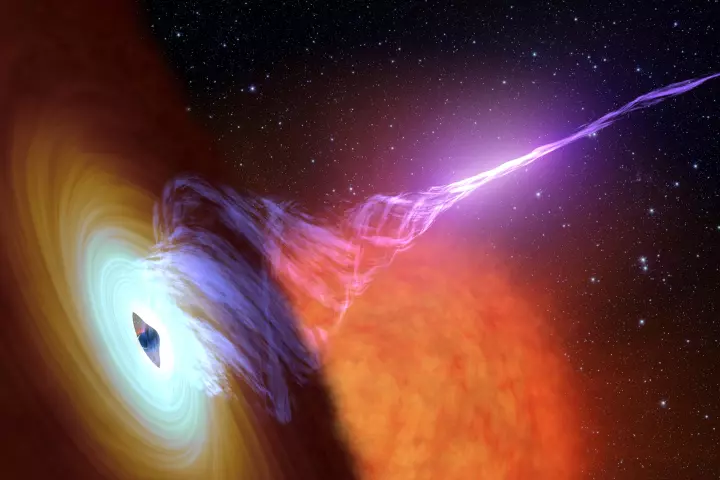Electrons
-
Japanese scientists have created what may be the world’s smallest video game. Using a regular controller, players can control a tiny digital ship, firing nanoscale bullets to push around a physical polystyrene ball just a few microns wide.
-
Scientists have accidentally discovered a particle that has mass when traveling in one direction, but no mass while moving in a different direction. Known as semi-Dirac fermions, particles with this bizarre behavior were first predicted 16 years ago.
-
Astrophysicists have detected the most energetic electrons ever recorded raining down on Earth. With trillions of times the energy of visible light, these cosmic rays seem to be coming from a powerful source relatively close to our solar system.
-
Under the right circumstances, electrons can actually “freeze” into a bizarre solid form. Now, physicists at Berkeley Lab have created and taken the first ever direct images of this structure.
-
MIT scientists have coaxed atoms into an exotic “edge state” for the first time, allowing them to flow completely friction-free. The breakthrough could lead to better superconductor materials.
-
NASA scientists have discovered a third global energy field around Earth. Known as the ambipolar electric field, this force drives charged particles into space above the poles and joins the known gravity and electromagnetic fields.
-
The subatomic world is hard to image not just because it’s incredibly tiny, but super fast too. Now University of Arizona physicists have developed the world’s fastest electron microscope to capture events lasting just one quintillionth of a second.
-
Supermassive black holes have been known to belch gigantic beams of plasma into space – and now scientists have managed to recreate these fireballs in a lab at CERN.
-
Scientists have confirmed the existence of a strange new form of magnetism. Hiding right under our noses, the team says that “altermagnetism” can be found in everyday materials and could have major technological uses.
-
Scientists at ETH Zurich have discovered a new type of magnetism. Experiments show that an artificially produced material becomes magnetic through a mechanism that hasn’t been seen before.
-
Scientists have found that a “superatomic” material is the fastest and most efficient semiconductor ever. Taking advantage of a tortoise-and-hare mechanism, the new material can transport energy much faster than silicon.
-
Everybody’s favorite wonder material, graphene, continues to surprise. MIT physicists have discovered yet another brand new electronic state hiding in this overachieving little material – something they give the bizarre name of “ferro-valleytricity.”
Load More










